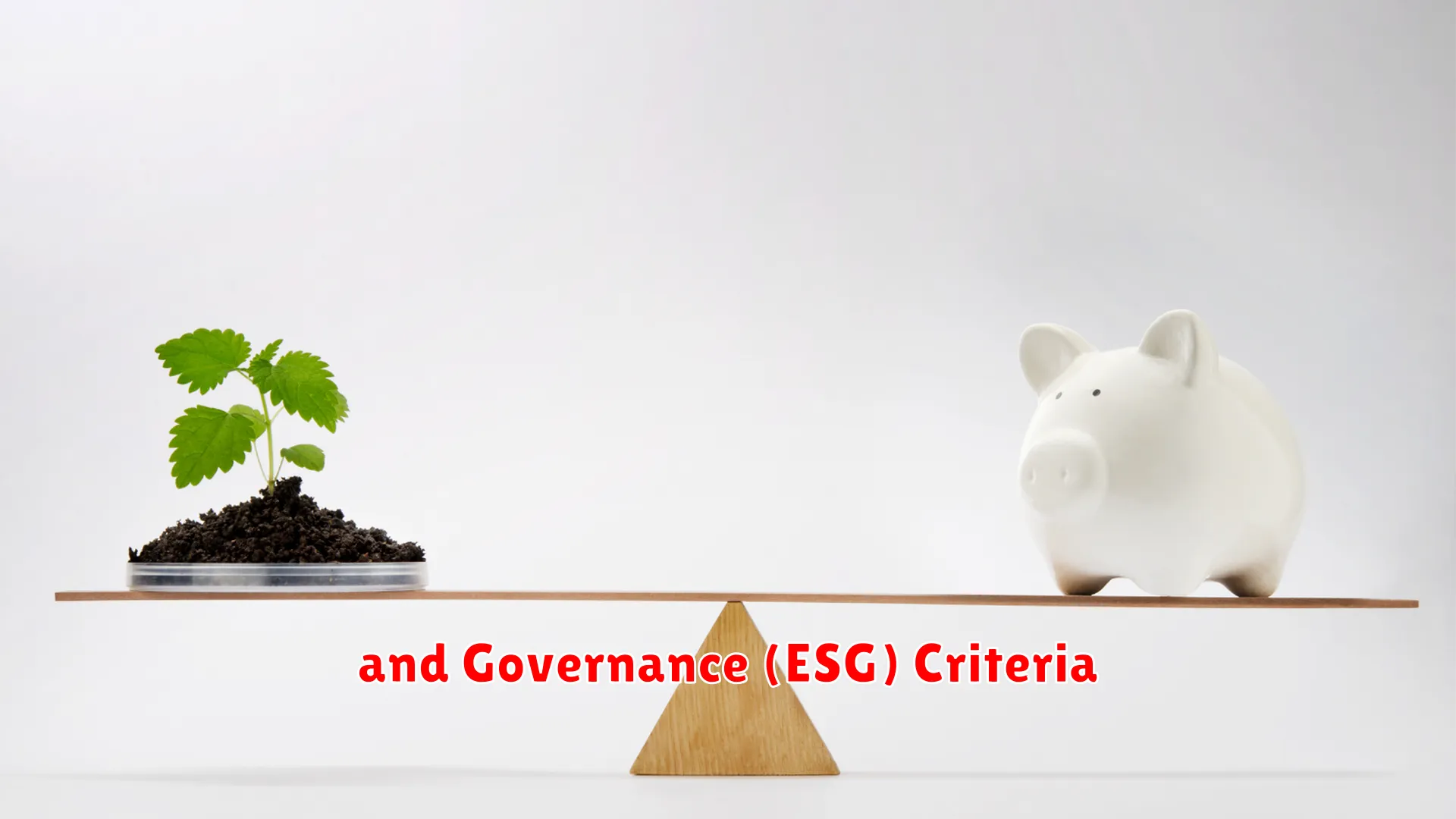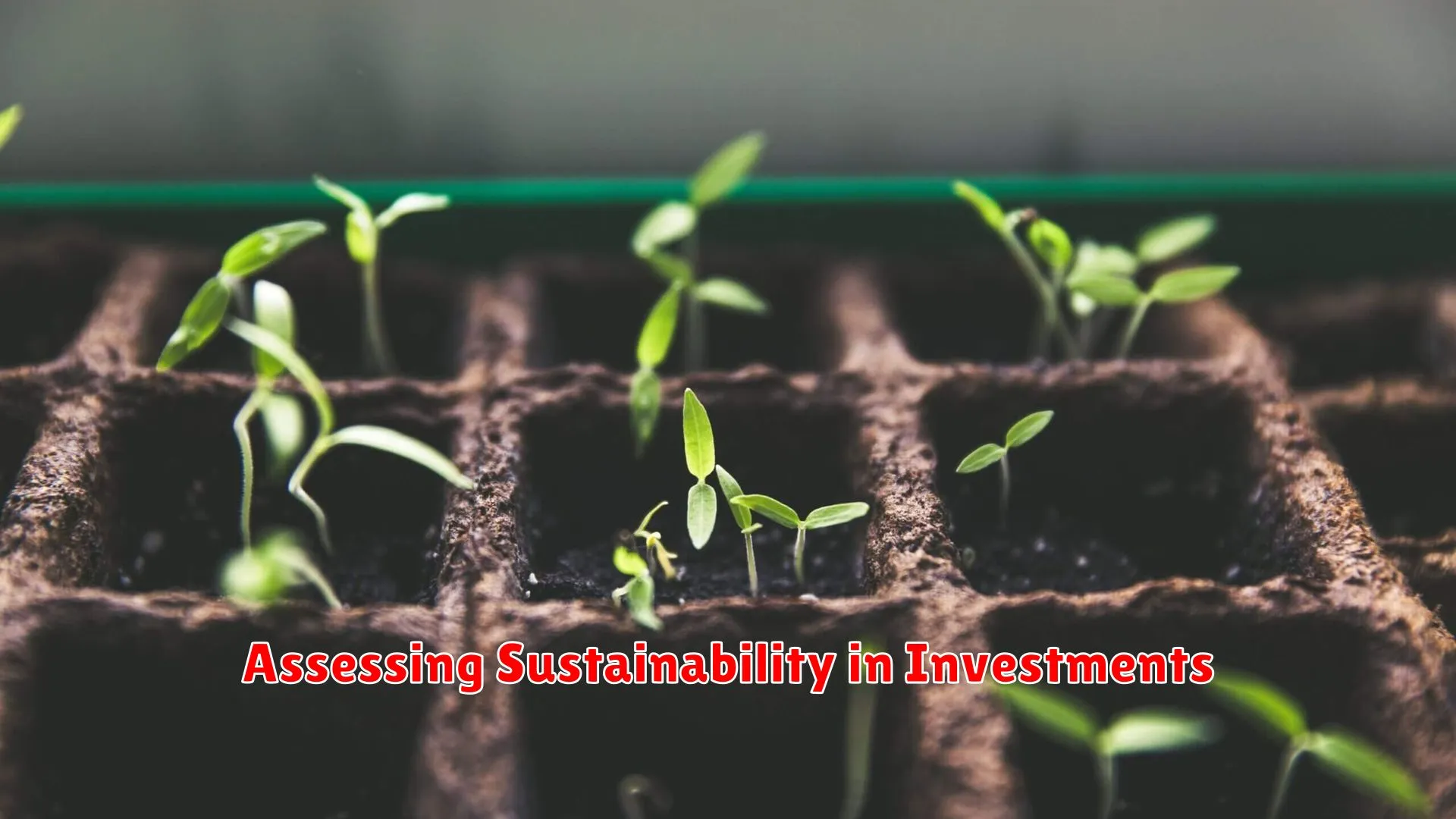Learn how sustainable investing allows you to align your portfolio with your values, making a positive impact on the environment and society while pursuing financial returns.
Principles of Sustainable Investing

Sustainable investing involves aligning your portfolio with your values in a way that considers environmental, social, and governance (ESG) factors alongside financial returns. Here are some key principles to guide your sustainable investment approach:
1. Environmental Considerations
One of the core principles of sustainable investing is to prioritize environmental sustainability. This includes investing in companies that are committed to reducing their carbon footprint, using renewable energy sources, and promoting conservation efforts.
2. Social Responsibility
Another important aspect is considering social issues. Sustainable investors focus on supporting companies that uphold ethical labor practices, diversity and inclusion, and community engagement. They also avoid investing in industries that harm human health or exploit vulnerable populations.
3. Governance Practices
Good governance is essential for sustainable investing. Investors look for companies with transparent and accountable leadership, strong risk management practices, and a commitment to ethical business conduct. By supporting well-governed companies, investors can help promote long-term financial stability.
4. Long-Term Impact
Sustainable investing is not just about short-term gains; it focuses on long-term impact. Investors seek companies that prioritize sustainable practices for the future, ultimately contributing to a more socially responsible and environmentally conscious world.
5. Engagement and Advocacy
Engaging with companies to improve their ESG performance and advocating for sustainable policies are crucial aspects of sustainable investing. By actively participating in shareholder advocacy and dialogue, investors can drive positive change within corporations.
By incorporating these principles into your investment strategy, you can create a portfolio that not only aligns with your values but also contributes to a more sustainable and responsible global economy.
Environmental

When it comes to sustainable investing, considering the environmental aspects of companies is crucial for aligning your portfolio with your values. Investing in environmentally responsible companies not only supports eco-friendly practices but also contributes to a cleaner and healthier planet for future generations. By focusing on companies with strong environmental policies and practices, investors can play a significant role in promoting sustainability and mitigating climate change.
One key aspect of environmental sustainability in investing is seeking opportunities in renewable energy sources such as solar, wind, and hydropower. Companies that prioritize renewable energy not only reduce their carbon footprint but also pave the way for a more sustainable energy future. Investing in these companies can financially benefit investors while promoting a shift towards cleaner energy production.
Furthermore, analyzing companies’ environmental strategies, emissions reduction goals, and efforts towards resource conservation can provide insight into their commitment to environmental stewardship. By incorporating these criteria into investment decisions, individuals can ensure that their portfolios are not only financially sound but also aligned with their environmental values.
Social Impact of Sustainable Investing

When it comes to sustainable investing, one of the key aspects that investors consider is the social impact their investments can have. By aligning your portfolio with your values, you can contribute positively to society while also aiming for financial returns.
Investing in companies that prioritize social responsibility and ethical practices can make a significant difference in various areas. For example, choosing to invest in businesses that promote diversity and inclusion can help create a more equitable and accepting workplace environment.
Furthermore, sustainable investing can support community development initiatives, such as affordable housing projects, education programs, or renewable energy ventures. These investments not only generate financial gains but also contribute to positive social change and environmental sustainability.
Environmental, Social, and Governance (ESG) Criteria

When it comes to sustainable investing, one crucial aspect to consider is the integration of Environmental, Social, and Governance (ESG) criteria into your investment decisions. ESG criteria are a set of standards that socially conscious investors use to assess the ethical impact of their investments.
By incorporating Environmental factors, investors analyze how a company manages its impact on the environment. This includes evaluating its carbon footprint, resource usage, and efforts to promote sustainability practices.
Considering Social factors involves examining the company’s relationships with employees, customers, suppliers, and local communities. It encompasses aspects like labor practices, diversity and inclusion initiatives, and community engagement efforts.
Moreover, Governance criteria focus on assessing the management structure of a company. Investors look at elements such as board diversity, executive pay practices, transparency in financial reporting, and overall corporate leadership.
Integrating ESG criteria in your investment strategy allows you to align your portfolio with your values by supporting companies that prioritize sustainability, social responsibility, and ethical business practices. It not only helps you achieve your financial goals but also contributes to positive societal and environmental change.
Impact Investing Opportunities

Impact investing provides individuals with the opportunity to not only seek financial returns but also to make a positive difference in the world through their investments. By aligning your portfolio with your values, you can support companies and projects that are actively working towards environmental, social, and governance (ESG) goals.
One significant impact investing opportunity lies in renewable energy projects. Investing in solar, wind, or hydro power initiatives can help reduce carbon emissions and contribute to a more sustainable energy future. These investments not only offer financial returns but also contribute to combating climate change.
Another avenue for impact investment is in companies that prioritize corporate social responsibility (CSR) and sustainable practices. By investing in such companies, you can support businesses that are committed to ethical practices, fair labor standards, and reducing their environmental footprint.
Furthermore, impact investing opportunities can extend to sectors like healthcare, education, and affordable housing. Supporting initiatives that provide essential services to underserved communities can create a meaningful impact while generating returns for investors.
Assessing Sustainability in Investments

When it comes to sustainable investing, assessing the sustainability of your investments is crucial. This involves evaluating how well a company or project aligns with environmental, social, and governance (ESG) factors. To ensure that your portfolio reflects your values and supports sustainable practices, here are some key considerations:
1. Environmental Impact
Assess the environmental impact of the companies you are investing in. Look for businesses that prioritize renewable energy, waste reduction, and resource conservation. Companies with a proactive approach towards reducing their carbon footprint and promoting environmental sustainability can be good options for sustainable investments.
2. Social Responsibility
Evaluate the social responsibility practices of the companies in your portfolio. Consider factors such as employee treatment, diversity and inclusion, community engagement, and human rights practices. Investing in companies that demonstrate a commitment to social responsibility can help promote positive social change.
3. Governance Practices
Examine the governance practices of the companies you are considering for investment. Strong corporate governance, transparent decision-making processes, and ethical leadership are indicators of a company’s commitment to sustainability. Companies with robust governance practices are more likely to operate ethically and sustainably.
4. Impact Measurement
Look for companies that provide transparent reporting on their ESG performance. Metrics and impact measurement tools can help investors gauge the social and environmental impact of their investments. Understanding the measurable outcomes of sustainable practices can guide your investment decisions towards companies that prioritize sustainability.
By assessing sustainability in investments through an ESG lens, investors can align their portfolios with their values and contribute to a more sustainable future. Making conscious choices to support companies that prioritize sustainability can drive positive change and financial returns in the long term.
Balancing Financial Returns with Social Impact

When it comes to sustainable investing, striking a balance between financial returns and social impact is key. Investors are increasingly looking to align their portfolios with their values, seeking investments that not only provide profitable returns but also contribute to positive change in society.
One approach to achieving this balance is through Environmental, Social, and Governance (ESG) criteria. By incorporating ESG factors into investment decisions, investors can assess not only the financial performance of a company but also its impact on the environment, society, and governance practices. This enables investors to support companies that are making a positive difference while still generating competitive returns.
Another strategy is impact investing, where investors specifically target companies or projects that have a measurable social or environmental impact alongside financial returns. This allows investors to directly contribute to addressing pressing issues such as climate change, social inequality, or healthcare access while still growing their wealth.
Ultimately, aligning your portfolio with your values through sustainable investing requires careful consideration and research. By evaluating both the financial potential and the social impact of your investments, you can create a portfolio that not only meets your financial goals but also reflects your commitment to a more sustainable and equitable world.
Conclusion
By incorporating sustainable investing principles, investors can not only achieve financial returns but also make a positive impact on society and the environment.

